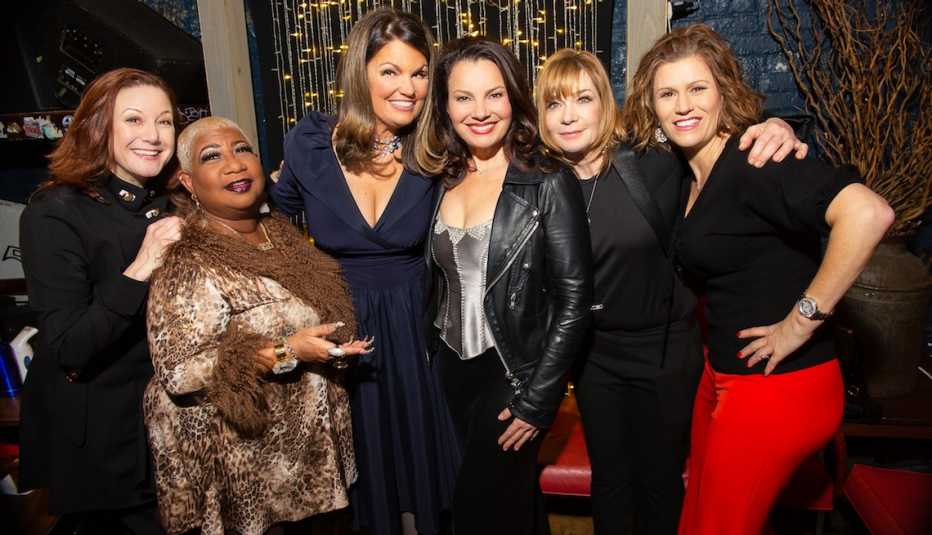Staying Fit


Fran Drescher, 61, headlines the first TV comedy special in history to feature multiple women over 50. Funny Women of a Certain Age (Showtime, March 23, 9 p.m. ET) also stars Carole Montgomery, 61, Luenell, 60, Lynne Koplitz, who turns 50 on June 13, and Kerri Louise and Vanessa Hollingshead, who don’t publicize their ages. AARP asked the honking comic Drescher about her new NBC show, the possible revival of her hit The Nanny and the fact that her entire career resulted from a chance encounter on a plane flight.
Carole Montgomery, who produced Funny Women of a Certain Age, jokes, “When you turn 50, you’re like Mr. Potato Head, and your genitals just fall off. Nothing’s left.” But that simply isn’t true, is it?


AARP Membership— $12 for your first year when you sign up for Automatic Renewal
Get instant access to members-only products and hundreds of discounts, a free second membership, and a subscription to AARP the Magazine.
Fran Drescher: No! Thank God, they are very active and healthy.
Your career is healthy, too. You’ve got this comedy special, and you play a grandma with a Brooklyn accent on NBC’s comedy pilot Uninsured.
Drescher: I play a somewhat unorthodox mother and grandmother who may not be the normal, stereotypical mom. She’s a funny, glamorous, immature personality.
Women of a certain age are having comebacks lately: Roseanne — who you beat in the ratings with your show The Nanny — was a hit before her self-destructing tweet, Will & Grace is killing, SNL’s Julia Sweeney is back on Shrill. Are things getting better for grownup comics?
Drescher: I feel like I'm at the right place at the right time. I mean, baby boomers are the largest population on the planet, and we’re all in this together, so there’s always an audience for our experience. It really helps to write your own material. Julia Sweeney’s show at the Geffen Playhouse was sold out [for two weeks] when I saw it, and she writes her own material — she’s not waiting for the phone to ring.
For entertainment news, advice and more, get AARP’s monthly Lifestyle newsletter.
Do you have a lot in common with your Funny Women of a Certain Age colleagues?
Drescher: These ladies might be a little more risqué. I try to keep it more wholesome. Because I don’t really do clubs, where you go a little farther — the audience is drinking, they expect a certain tone. I’m honing my act more for charity events, fundraisers, like my Cancer Schmancer movement. We’re releasing a free education video on Earth Day, April 22, starring Jamie Foxx [51], Jeff Bridges [69] and myself.

































































More on Entertainment
Comedy by and for Older Adults
A roster of older comics are part of the Senior Comedy Afternoons program